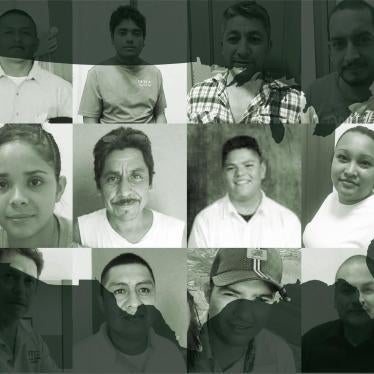Last week, the Department of Homeland Security proudly announced a stark 42 percent increase in immigration arrests in the interior of the country, rather than at the border, during the first eight months of the Trump administration, from the inauguration to September 30. Department officials emphasized that “no category of removable aliens would be exempt from enforcement.”
These numbers are nothing to crow about. The surge in these arrests doesn’t just mean that US Immigration and Enforcement (ICE) is working harder. It means ICE is uprooting more immigrants who have lived in the US for many years and separating more families.
The Barcenas family is just one example. David Barcenas, who was brought to the US when he was 2 years old, was deported in May after almost 30 years in the US. He met Melissa, a US citizen, in 2008 and they quickly became a family with her two daughters from a previous relationship and their two children who came soon afterward. They were very much an American family. They had a happy life in Victoria, Texas, a routine of church on Sundays, followed by visits to the park or weekend trips to Corpus Christi.
But after a traffic stop, local police discovered that David was driving without a license. He was quickly arrested by immigration authorities and soon after deported to Mexico, a country he hardly remembered. His most serious run-in with law enforcement had been a conviction for driving under the influence over 10 years earlier. Since his deportation, Melissa has struggled emotionally and financially to take care of their children. “We cry daily for him. It doesn’t get easier with time,” she told us. David’s stepdaughter, Alyssa, said, “It feels like our family’s broken.”
David wasn’t eligible for Deferred Action for Childhood Arrivals because of the DUI, but he could have benefited from the DREAM Act.
Stories like Melissa and David’s are not unique. Our staff and volunteers interviewed recently deported immigrants in Nuevo Laredo and Tijuana, Mexico, during multiple visits to the border over eight months. We documented 43 cases of immigrants, many with strong ties to US families and communities, whose deportation has been devastating not only for them, but for their families and communities as well.
Alexis G., who also grew up in the US, told us, “If I were to sing an anthem right now, it would be the Star-Spangled Banner – I don’t know the Mexican anthem.” Lucia H., a farmworker from California, said since her deportation, her 5-year-old son had stopped eating and had to be hospitalized, and her 14-year-old son had suffered a breakdown and was receiving therapy.
DHS in its release also said it was prioritizing “its resources to enhance public safety and border security.” But a close look at its numbers makes clear that immigration arrests of people with no criminal convictions during the first eight months of the Trump administration nearly tripled compared with approximately the same period in 2016. “Sonia H.” told us: “I’ve never committed a crime, I’ve never been in jail. I didn’t drive because I didn’t have a license.” Her 9-year-old US citizen son now lives in a children’s home run by nuns in Laredo, Texas.
Even among those with criminal convictions, as Human Right Watch analysis has revealed in previous years, the large majority are not the dangerous, violent criminals highlighted in President Trump’s rhetoric and in ICE news releases.
Congress and the Trump administration should reform abusive immigration law and policy so that anyone facing deportation gets a fair, individualized hearing in which the person’s ties to US families and communities can be weighed against the government’s interest in deporting them. Those same ties should become the basis for a fair legalization program.
At the very least, Congress should pass a “clean” DREAM Act with no accompanying harmful trade-offs such as reduced protections for child migrants and refugees, as the White House has indicated it seeks. Congress should also decline any administration requests to increase funding of immigration enforcement efforts that are not tied to long overdue reforms to immigration law as well as efforts to increase transparency and address abusive conditions in immigration detention.
Without reform and limits to abusive immigration enforcement, many more American families will end up needlessly broken








